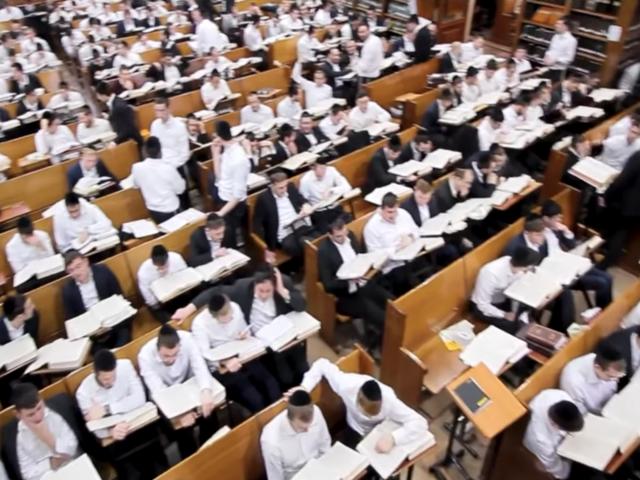In a significant development, Israel's High Court of Justice has taken a decisive stand in the ongoing debate over military service exemptions for ultra-Orthodox Jewish students. On Thursday, the court issued an interim order that will have far-reaching implications, both politically and within Israeli society. This decision mandates the cessation of state subsidies to ultra-Orthodox Jewish private educational institutions, known as yeshivas, where students have been bypassing the nation's compulsory military service. This move is not just administrative; it represents a critical juncture in Israel's efforts to balance religious traditions with national obligations.
The ruling signifies an end to the existing legal framework that allowed for the deferral of military service for yeshiva students, effectively closing the loophole on April 1. The Israeli Defense Forces (IDF), reflecting on the court's decision, affirmed their readiness to comply with the new legal landscape, emphasizing their commitment to act "according to the law" in drafting eligible yeshiva students.
Israeli High Court Freezes Yeshiva Funding, Backs IDF Haredi Draft
— Leslie Kajomovitz (@lkajomovitz) March 29, 2024
Amid ongoing conflict, the Israeli High Court's last night ruled to freeze Yeshiva funding and endorse the IDF draft for Haredi individuals. This is of high significance, for years, exemptions from military… pic.twitter.com/e2IkhhyDqw
The reaction to the court's order has been polarized. Benny Gantz, a prominent figure within the war cabinet and the chairman of the National Unity party, expressed support for the decision. In contrast, Yitzhak Goldknopf, the leader of the United Torah Judaism party, vehemently criticized the ruling, framing it as an assault on the Torah and its scholars. Some Haredi leaders have been on the record as saying if they are forced to serve in the Israel Defense Forces, they would leave the country.
This pivotal decision stems from a broader context of attempts by the government to formulate a strategy that would integrate ultra-Orthodox men into military service, amidst growing public dissatisfaction over exemptions. The High Court's ruling came as a response to the government's repeated delays in presenting a viable plan to increase ultra-Orthodox enlistment, showcasing the judiciary's diminishing patience with the legislative inertia.
Yesterday, the High Court of Justice in #Israel took a decisive step concerning military service exemptions for #Haredi yeshiva students when they issued an interim order. It blocks gov't funding to yeshivas whose pupils are of army age and don't serve.https://t.co/cm6H97UzBM
— The Media Line (@TheMediaLine) March 29, 2024
The controversy has plunged Prime Minister Benjamin Netanyahu's coalition into turmoil, with threats of departure from both Gantz and the Haredim, based on the outcome of the enlistment legislation. The ultra-Orthodox parties have lambasted the High Court's decision as a direct affront to their community and religious practice, with Aryeh Deri of the Shas party decrying it as an unprecedented marginalization of Torah study in the Jewish state. However, many argue this is about fairness in carrying the burden not just of service to the State, but the contribution to the State's coffers. The amount of subsidies provided to the ultra-orthodox community has contributed to an unsustainable imbalance where the working population is taxed heavily in order to support a portion of the population that many in the country feel give nothing back.
Proponents of equal military service, represented by the Movement for Quality Government in Israel, hailed the ruling as a landmark step towards eliminating "illegitimate discrimination" and ensuring that all citizens share the burden of military service.
Israel's High Court endorses IDF Haredi draft, calls to freeze yeshiva funding https://t.co/QAGgXAvkKj
— Religion and State (@religion_state) March 29, 2024
This judicial intervention marks a critical moment in the ongoing dialogue around military enlistment, religious freedom, and societal obligations in Israel. It underscores the judiciary's role in addressing complex socio-political issues and reflects the broader challenges facing Israeli society as it grapples with integrating a diverse and growing ultra-Orthodox population into the national fabric. With the government's resolution expiring and the court's mandate taking effect, the coming months will likely see significant developments in how Israel navigates these contentious issues, balancing the imperatives of national defense with the preservation of religious and cultural traditions.


